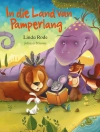In ‘The Happy Prince, and Other Tales, ‘ Oscar Wilde masterfully intertwines whimsy with profound moral lessons, presenting a collection of poignant fairy tales that delve into themes of love, sacrifice, and social injustice. Through rich, evocative language and intricate imagery, Wilde crafts stories that are both enchanting and thought-provoking, appealing to both children and adults. Notably, the title story, ‘The Happy Prince, ‘ personifies the titular statue, exploring the duality of appearance versus reality while highlighting the stark contrast between opulence and poverty in Victorian society. Oscar Wilde, an influential figure of the late 19th century, was renowned for his wit and flamboyant style, which often masked deeper critiques of societal norms. Drawing on his own experiences in a society that frequently dismissed sensitivity and compassion, Wilde’s tales reflect his belief in the necessity of empathy and altruism. His unique ability to fuse satire with genuine moral inquiry situates ‘The Happy Prince’ within a broader literary context of fairy tales that subvert traditional boundaries. This collection is essential for readers seeking to explore the intersection of fantasy and moral philosophy, offering not just entertainment but also deep reflections on the human condition. Wilde’s timeless narratives resonate with contemporary societal issues, making them relevant for today’s audience and a must-read for anyone interested in the richness of moral storytelling.
Giới thiệu về tác giả
Oscar Wilde (1854-1900) was a luminary of Victorian literature, known for his sharp wit, flamboyant style, and brilliant dialogues. A poet, playwright, and author, he is perhaps best remembered for his novel ‘The Picture of Dorian Gray, ‘ his numerous short stories, and his enduring plays such as ‘The Importance of Being Earnest’ and ‘An Ideal Husband.’ Born in Dublin, Ireland, Wilde excelled at Trinity College, Dublin, and later at Magdalen College, Oxford, where he became known for his involvement in the aesthetic and decadent movements. He worked as a journalist and essayist before transitioning to writing fiction. In his short story collection ‘The Happy Prince, and Other Tales’ (1888), Wilde combines elements of fantasy and social critique, offering both entertainment and moral enrichment, and showcasing his skillful use of language and allegory. Often acclaimed for the aestheticism he advocated, his works reflect the paradoxes and ironies of society, coupled with an underlying moral sensibility. Despite his literary successes, Wilde’s career declined after he was imprisoned for gross indecency, a consequence of the prevailing laws against homosexuality. His later works, including ‘De Profundis’ and ‘The Ballad of Reading Gaol’, were informed by his experiences of hardship and societal rejection. Wilde’s contribution to literature remains influential; his unique blend of satire, humor, and poignancy continues to be celebrated worldwide.












